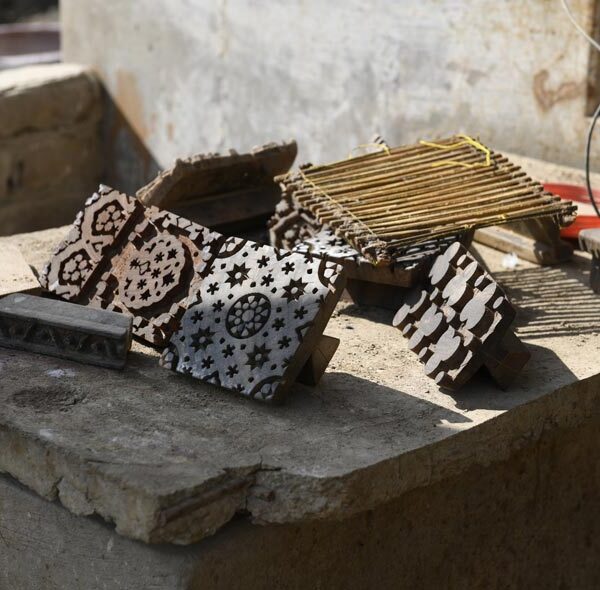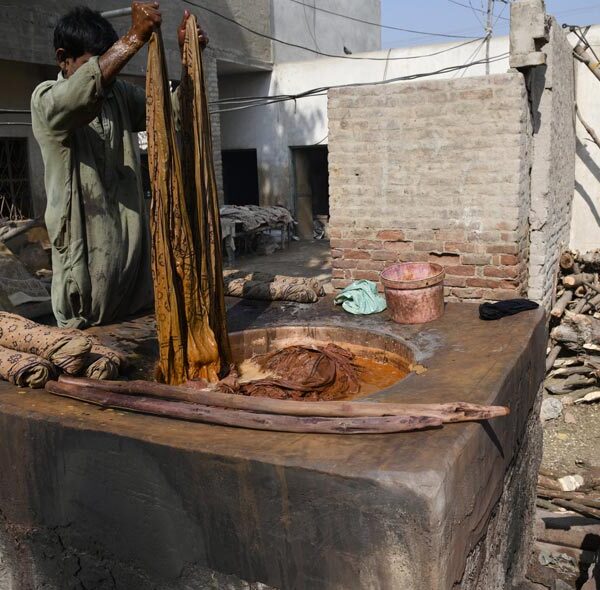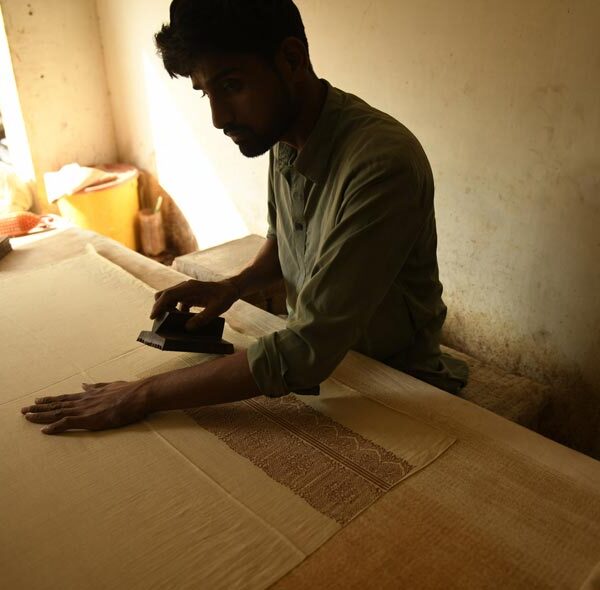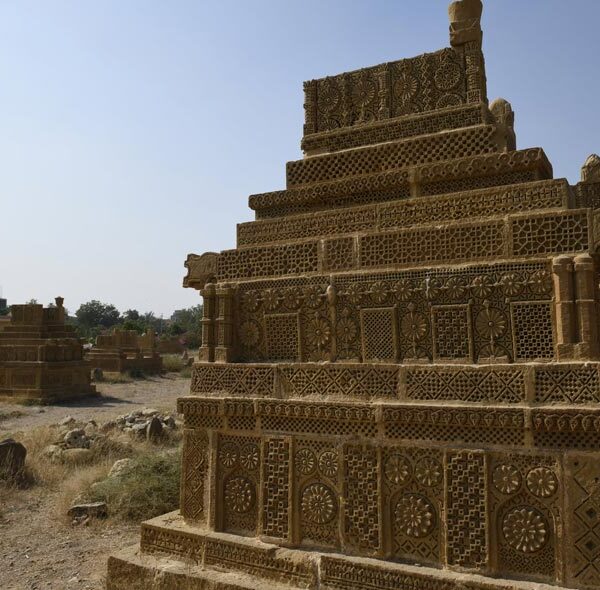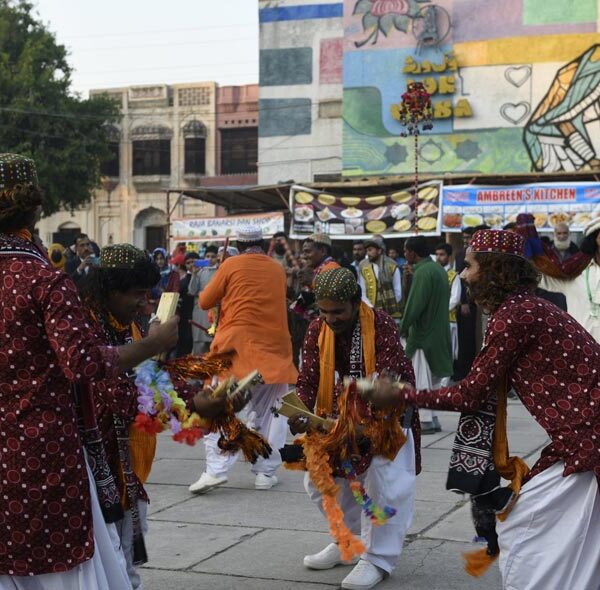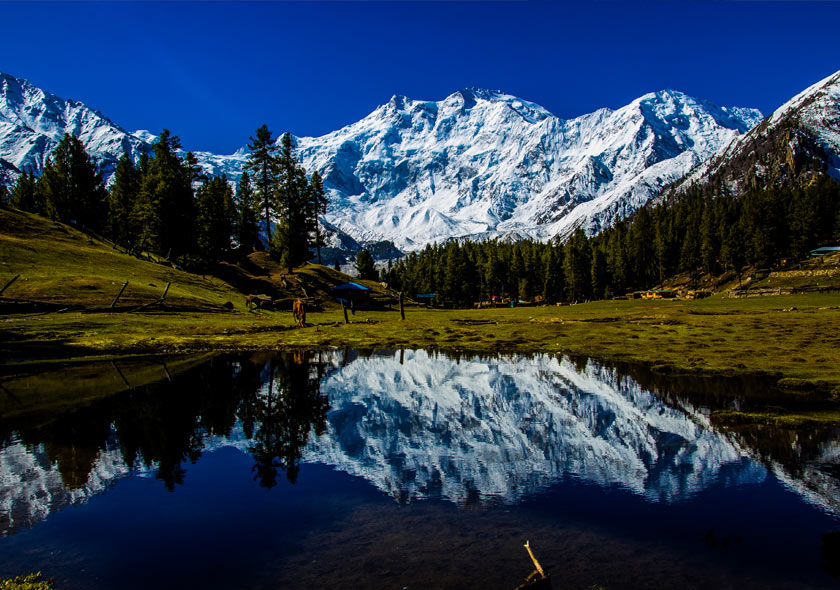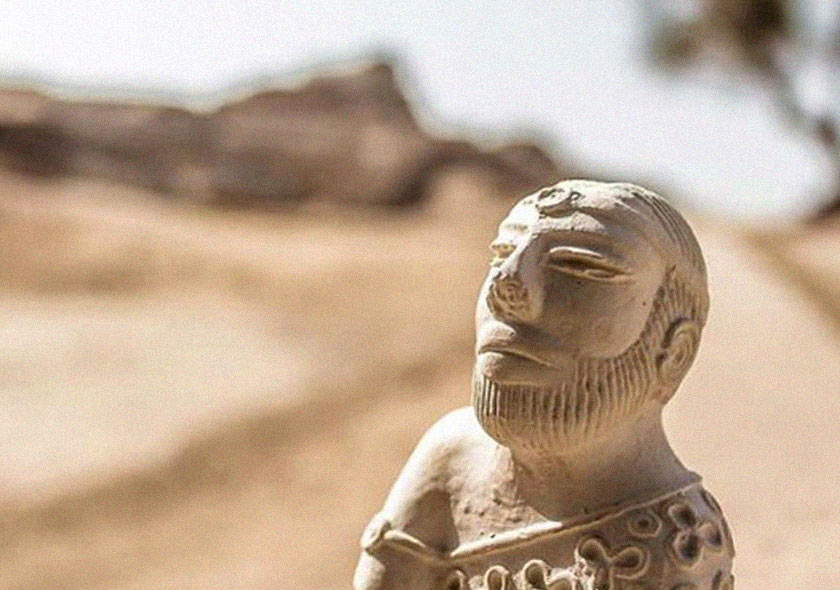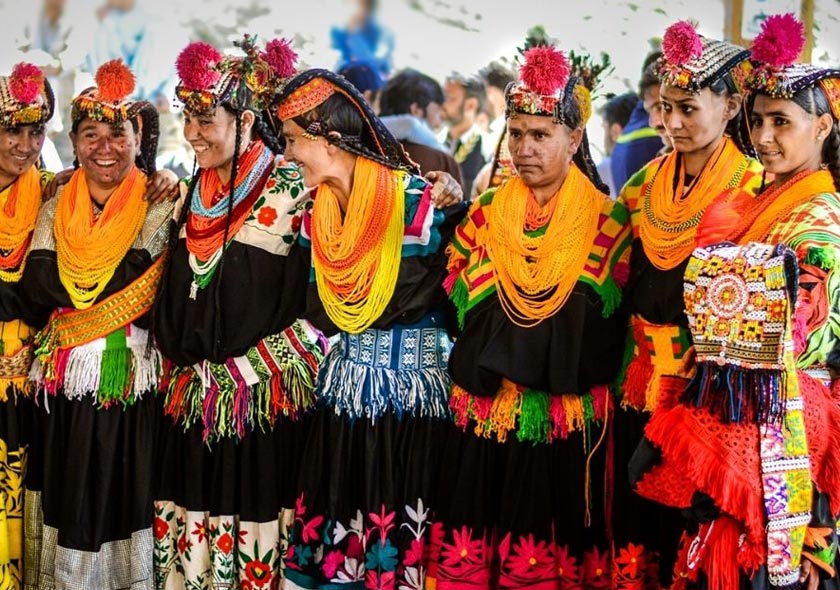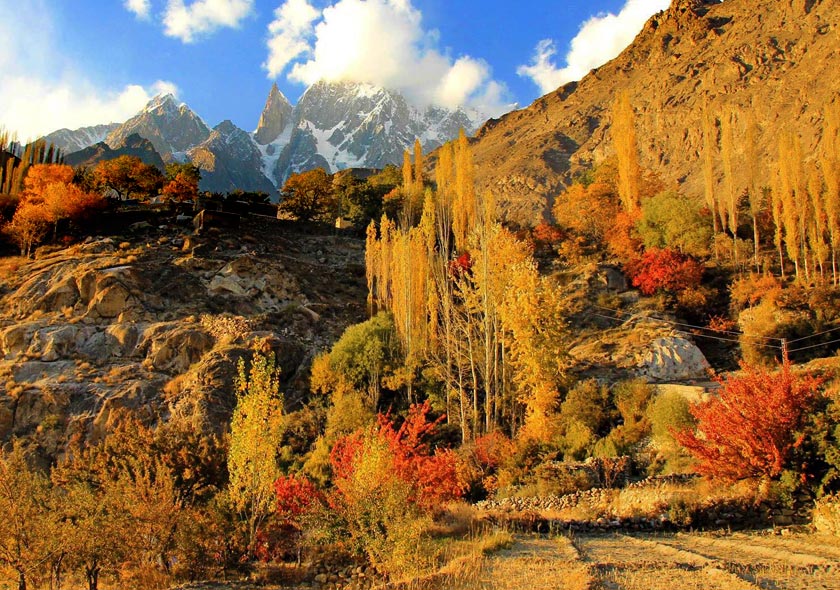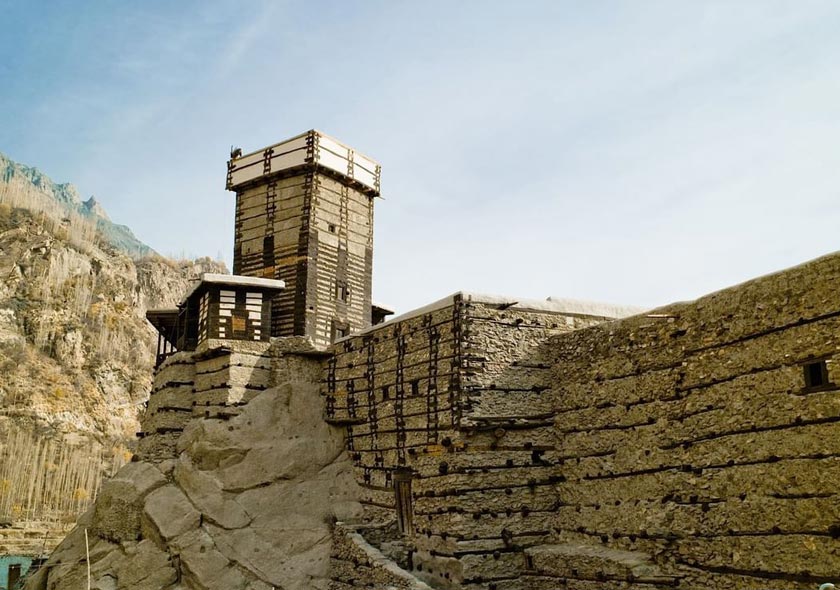Ajrak, The wonder fabric
Duration Days
Overview
Making the Ajrak is a long process through which a piece of cloth undergoes the love and dedication of its master showing off his generational art of cloth stamping. Ajrak is a full story in itself and to see the making of this magnificent artwork is a great merit of human intelligence whose strength dates back to our early historical times.
Sindh is the land of Civilizations, the land of incessant invasions and battles. Indus river flows through the high valleys rising from Tibetan Plateau, the glacial waters of Ladakh, cutting fiercely through the highest mountainous regions of the Himalayas and Karakoram. Its huge water mass flows through the heart of Pakistan, once the cradle of the famous Indus Valley Civilization existing 4500 years ago. It was a vibrant, highly civilized community, subsisting along its banks. The well-organized communities maintained constant contact with other civilizations existing in Mesopotamia, Persia, and Central Asia. Then a wave of nomadic hordes of Aryan migratory tribes in 1500 BC replaced these communities with a lasting effect on the cultural and ethnic outlook of the region as far as the Indo-Gangetic plain.
Though the settled towns of the Indus Valley Civilization were wiped its rich cultural heritage never gave way to invaders, rather it got amalgamated into the barbaric onslaught with far-reaching historical and cultural impacts on the daily life of its people. Ajrak as a fabric is one of the unique examples of rich Indus Valley heritage, surviving for 4500 years. This wonder fabric maintains its ancient designs and methods of processing and that has not altered even today. Ajrak is such an inspiring fabric that leads us deeper into Sindhi culture in many ways, into their rich resonating music inspired by the great Sufi poets whose sweet words indulge one into the trance of oneness.
We shall see an amazing episode of Ajrak making visiting the remote parts of Sindhi desert towns and villages. Then also various handicrafts and meeting with the families involved in the making of their artworks. We shall see Sindhi embroidery works on dress panels, traditional caps, and shawls. The glass work will include colorful bangles, lacquer work on house furniture, and pottery works that will give us deep insight into the pure arts of Sindhi folk life. The most interesting aspect is to see the families involved in generational work which is giving fast to modern techniques but local awareness is infusing a new dimension in folk art by protecting and helping the families. Sindh has been known for its traditional crafts with deep love and feeling for the artists. Its crafts embedded in traditions go with the daily life of its creator. The love for music resonates with the artistic activity of Sindhi folk life in the realm of serene deserts.
Itinerary
Day 01: Arrive Karachi – Flt
Meeting on arrival, assistance and transfer to your hotel
Welcome Dinner at local restaurant!
Meet an expert on Sindhi Textiles – an audio visual presentation an introduction of Sindhi Textiles and folk crafts.
The main topic of the talk will be Ajrak the wonder fabric of Sindh
Overnight
Day 02: Karachi
This morning we shall spend visiting the local market exploring stores selling local textiles.
Also we shall visit the traditional bazaars and National Museum – the ethnic gallery with collection of textiles and fabric.
Afternoon excursion to Chaukundi tombs – the wide necropolis is unique for its floral fret work.
in red sandstone. Some tombs are exceptional in design which we shall observe in Ajrak printing and embroidery work.
Overnight
Day 03: Karachi – Thatta – Hyderabad – 165 kms
Morning depart for Hyderabad via the old National Highway – we shall make our first stop at Thatta and Makli. We shall visit 16th century Shah Jehan’s mosque and later visit the necropolis of Makli Hill. The tombs are excellent examples of fret work on red sandstone, reflective of traditional Sindhi floral and geometric patterns. We shall visit the local handicraft.
centers to see Sindhi embroidery of Thatta. Later continue to Hyderabad and on arrival transfer to hotel. Short ride of the old town visiting some local shops.
Overnight.
Day 04: Hyderabad – Matiari – Hyderabad
We shall make an extensive excursion to see the process of Ajrak making. This will be a pre- arranged visit to the workshop one of the local master with a descriptive show of the stamping process of Ajrak making.
Day 05: Hyderabad – Mithi – 210 kms
Today we shall depart for Mithi deeper into Thar Desert – on arrival after settling in our Guest House we start exploring Thar desert communities – this will be drive on desert roads deeper in the desert to visit local communities living in traditional thatched huts of mud. We shall have the opportunity to see the making famous rilli a bed spread of patch work and also see desert embroidery work. On arrival after check-in at Marvi Motel we shall leave for the town visit Mor Handicraft Centre – this is a store will large collection of patch work, embroidery on dresses, handbags, table cloth, wall and ground spread Thar is inhabited by ethno religious Muslim and Hindu communities spread out in large deserttract. Deeper in the desert communities live in hamlets of thatched roofed huts. People subsist on small scale farming dependent on rainfall and often gets worst in dry months. Thar extreme weather causes families to move to more near water resources so many make shift farm lands are wide spread in the region. However few settled villages with scarce population keep their way of life supported by moveable farming habits.
The diverse nature has given resilience to local folks who live under trying weather extremities. In Thar we shall be exploring local community based handicrafts mainly Thari embroidery which is colorful bright and symbolic effected by its daily life and surroundings.
Return to our base of Mithi at the end of the day
Overnight
Day 06: Mithi – Hala – Sehwan – Manchar lake – 368 kms
Morning depart for Sehwan taking the route via Hyderabad – we shall make first stop at the town of Hala. Our visits to include workshops of local pottery making, handlooms producing traditional textiles and etching on lacquered wood work.
Next we shall visit 17th century shrine of famous Sufi Saint Shah Abdul Latif with elaborate décor of local blue tile work while the interior of the tomb is colorfully painted.
Later we shall continue to Manhar Lake and on arrival transfer to lakeside motel It will be great to see the sun setting views on the lake which has large number of boat people living in boats on the lake
overnight
Day 07: Manchar Lake – Moenjodaro – Sukkur – 252 kms
In the morning we shall visit the boat people who are born, live and die on the boat houses. Manchar is a fresh water lake and people live on the water subsisting on fishing which is now on the decrease due pollution but Mohanas, the boat people keep their centuries old life style of living on the water in old traditional way. We shall take the opportunity of meeting a Mohana family and share with them their experiences of life on the water. Later we shall proceed to Moenjodaro, one of the prime site of Indus Valley Civilization which thrives along the banks of river Indus some 2500 BC. While we drive through the villages we may see that life has not changed much as the same old bullock carts are still being used.
The statue of the famous Chief Priest wearing an Ajrak was found here. We shall visit local museum and the site in detail with local expert.
After a short break we shall continue to reach Sukkur our next stop.
Overnight
Day 08: Sukkur
Today we shall spend a hectic day in Sukkur exploring and visiting local handicraft workshops for traditional Sindhi embroidery work and later visit local shop selling embroideries for dresses, pillow covers, bed sheets and rillies the applique work. In the afternoon we shall make excursion to Khairpur – we shall be visiting the date farms and see procurement and drying of date fruit. We shall also visit 18th century Kot Diji Fort sitting on pre Harappan site 3300 BC. The fort was built by powerful Talpur rulers of the region and we shall have a chance to visit 18th century Faiz Mahal or Faiz Palace of Talpurs
Return to Sukkur in the late afternoon
Overnight
Day 09: Sukkur – Bahawalpur – 387 kms
Morning depart for Bahawalpur enroute we shall make stop to visit Uch Sharif – the medieval city which has history even dating back to 326 BC when Alexander the Great after defeating Raja Porus at the battle of Elephants, marched downwards to the point of the joining of five rivers. This was significant moment and deciding factor where Alexander the Great faced mutiny when his soldiers, weary of war refused to carry further on to his Indian expedition/Alexander the Great succumbed to the pressure and ordered homeward march but dispatched Nearchus, the admiral to find the mouth of Indus and join him in Persia. He himself followed the river course for a while before moving westward into Gedrosia, experiencing harsh terrain and weather losing a section of army to heat.
In Uch Sharif we shall visit the classical tombs of local rulers with wonderful tile work and continue to Bahawalpur. After check-in we shall make short evening tour of the town visiting the palace of the last Emir of Bahawalpur.
Overnight
Day 10: Bahawalpur – Multan – 100 kms
This morning we shall make excursion to Fort Derawar in the desert – we shall visit the tombs of the old Nawabs or rulers of former Bahawalpur State, also visit the Abbassi Mosque with its intricate Jaipur marble work. Later depart for Multan and on arrival after check-in we shall do do a walking tour of the old bazaar of Multan
Overnight
Day 11: Multan
This will be our activity day filled with local handicraft workshops visit: Multan is known for its handicraft which has deep rooted connection with Persian floral patterns. In the first half we shall dedicate to local textiles visiting local handloom industry. This will also include visiting display of Multani embroidery and applique work. Later we shall visit local pottery works, wood carving workshops, camel skin products and local tile works. We shall be visiting local stores to hunt for old and new hand made textiles, desert embroideries in bed sheets, dress apparel, handbags, cushion covers and local embroidered caps - Overnight
Day 12: Multan – Lahore – 339 kms
Morning depart for Lahore with short stops enroute – on arrival at lunch time we shall leave soon after check-in for our first city sightseeing tour. Lahore is known for its rich culture and great Mughal heritage. We shall be visiting the famous Shalimar Gardens and Lahore Museum
Overnight
Day 13: Lahore
Full day dedicated to the visit of Mughal monuments to include the great Badshahi Mosque, Lahore Fort the best example of the development in Mughal architecture in different stages. Later visit Jehangir’s mausoleum Afternoon will be dedicated to old part of Lahore city which has not changed through centuries with its vibrant bazaars full local color and flavor.
Overnight
Day 14: Lahore – Depart
Transfer to airport for your destination flight


